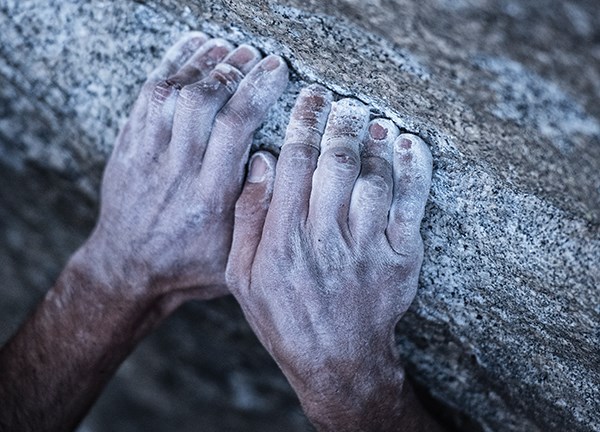����recently talked to two physiotherapists about what makes climbing so injurious. We discussed common injuries, ideas to keep the beginner and expert alike from getting injured and common threads that run through climbing and exercise in North America which contribute to cycles of injury. Their unique reasons for becoming physiotherapists and ideas on rehabilitation made me want to get their take on climbing for health and sport.
Pascal Bolla of Physio On Wheels is a German physiotherapist who competed in judo on an international level in his youth, a recreational gymnast, climber and all-around humble athlete who lives in �ϰ������ϲʿ�����¼����. Bolla started Physio On Wheels in 2013 as a way to treat clients’ problems more meaningfully; he believes that treating them within their homes, places of work or recreational settings makes for honest, clear diagnosis and more effective treatments. Bolla says prevention is the most powerful and underused tool available to a climber. Prevailing attitudes towards exercise, self-improvement, ego and sport all play a synchronous role in threatening the new and experienced climbers’ health.
Much of the population works too much, sleeps too little, eats poorly, is too sedentary and feels stress of one kind or another, and much of the climbing community participates as weekend warriors. These warriors play too hard for the condition of their bodies and don’t respect the tissues most involved in climbing. Tendons and ligaments of the fingers experience uniquely high loads that only slowly recover and grow when compared to muscles with their rates of higher blood flow. The new climber experiences improvement muscularly after a few weeks of climbing and adds more and more climbing to their plate. There’s nothing like the addiction of seeing and feeling improvement, yet it sabotages us. Bolla’s main point is to “get excited about looking sexy on the wall versus clawing your way to the top as much as possible.” The quality, not quantity, of your climbing plays a bigger role in long-term improvement in the activity.
The aspect that works against us in North America, he said, is the success-at-any-cost attitude. Most view the only goal as reaching the top but fail to understand that this attitude ingrains poor techniques and causes cycles of repeated, chronic injuries. Another factor is the seasonal nature of climbing, where your steep winter gym climbing endangers your fingers, shoulders, elbows and back far more than your summer spent outdoors on low-angle granite, where your weight is spread out more evenly between your limbs.
Another �ϰ������ϲʿ�����¼���� physiotherapist I interviewed, Will Bateman, discovered climbing at 16 and immediately began training madly. He injured his shoulders repeatedly, finally seriously enough to stop the sport temporarily. Once he returned, he decided to go into physiotherapy to learn how to give himself the care he felt was lacking. Later, his website Project Physio became a way of continuing his own interests in training and rehabilitation and providing current information to a wide audience. That, better care to more people, is Bateman’s mantra.
In the face of a population that can’t always afford regular treatment or has no benefits plan to cover costs, Bateman’s focus is empowering clients with as much information as possible, with an emphasis on prevention and pre-habilitation. Asked about the top injuries a climber experiences, he without hesitation mentioned finger pulleys, shoulders, elbows and low back. In a new climber, especially a fit one, fingers get injured because tendons aren’t nearly as easy to strengthen as muscles. The elbows and shoulders often follow in concert, once poor posture and sore fingers cause postural death to your poor shoulders.
In experienced climbers, the injuries are the same but the problems have become cyclic, with poor form, bad posture and sloppy technique all combining with a culture of more-is-better, climb-until-failure, overtraining or lack of training. Strong yet injured climbers won’t stay with the sport because of frustration.
So what do you do? Bateman’s words echo Bolla’s in suggesting taking the long game, where quality of climbing comes over quantity. Above all, climbing is a skill-based activity in which movement, technique, mental strategies and efficiency will give the beginner and expert alike more to work with over the long term than simply strengthening muscles.




